Even though the Slovak Republic is a relatively young state and its sovereign parliamentary tradition had only started developing in the 20th century, the implementation of the idea of democratic representation of Slovaks has deeper roots.
For centuries, the territory of today’s state had been a part of the multi-national Kingdom of Hungary, in which it never formed an autonomous area. Nevertheless, it maintained its significance throughout this time. From 1536 – 1848, the Hungarian Estates’ Assembly had its seat in Bratislava. In 1847, Ľudovít Štúr, representing the constituency of Zvolen, became the first Slovak Member of Parliament. Especially thanks to him, the history of Slovak parliamentarianism is closely connected with the struggle of Slovaks for their national identity and state sovereignty, as well as for civil and social rights.
The tradition of current Slovak parliamentarianism goes back to the historical first Slovak National Council. It had been constituted on 16 September 1848 at an assembly of 2007 people in Vienna. The first Speaker of the Slovak National Council was Jozef Miloslav Hurban, assisted by other members of the Council gremium – Ľudovít Štúr and Michal Miloslav Hodža. From 1848 – 1849, this highest political body, with a seat in Myjava, also acted as the government and stood at the forefront of armed volunteer fights against Hungarian domination and in support of the national political demands set out in a manifesto entitled The Demands of the Slovak Nation. The Slovak National Council proclaimed its independence in an effort to obtain autonomy within the monarchy. From 1869 – 1918, Slovaks were represented in the Lower Chamber of the Hungarian Assembly by elected Slovak MPs (their exact number fluctuated from zero to seven); the first Slovak political parties were also founded in this era.
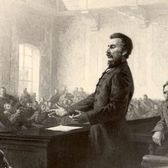
In 1847 Ľudovít Štúr ran for a seat in the Hungarian Diet and got elected as its deputy for the central Slovakian town of Zvolen.
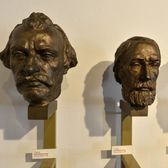
On September 15-16, 1848 the Slovak National Council was created in Vienna as a Slovak political body during the revolution of 1848 At its head stood its political leadership trio represented by Ľudovít Štúr, Jozef Miloslav Hurban and Michal Miloslav Hodža. The body organised the Slovak Uprising in 1848-1849 within the Revolution of 1848, as well as executive power in parts of Slovakia occupied by united Austrian-Slovak forces. The first meeting on the territory of Slovakia was in Myjava where the first national gathering of Slovaks took place on 19 September 1848. Ľudovít Štúr declared the independence of the Slovak nation from Hungary at the gathering. However, the Slovak National Council administered only Myjava and its surroundings and the volunteers were defeated after a few days. The Slovak National Council ceased to exist in the autumn of 1849, after the revolution had been suppressed.
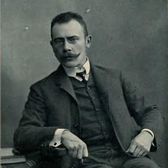
At the end of 1913 and the beginning of 1914, an attempt was made to re-establish the Slovak National Council as a political representative of Slovaks’ national will. The Slovak politics was thus given an opportunity to combine its forces in the project of the Slovak National Council. However, due to the outbreak of WWI the project failed to materialize. The Slovak National Council was established only a few years later; 1914 was actually a mere attempt.
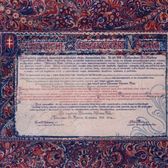
On 30 October 1918, the Slovak National Council – the highest representative body of Slovak nation – declared separation from Hungary and establishment of the Czechoslovak Republic.

In November 1938 the Assembly of the Slovak Land came into being within Czechoslovakia in extremely complex international circumstances, to become known later on as the Assembly of the Slovak Republic in the wartime Slovak State.
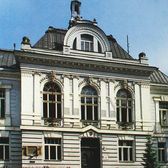
In December 1943 a document was adopted upon whose basis the Slovak National Council was established to act as the resistance movement’s highest body to take over legislative and executive power in the state at a suitable moment. During the Slovak National Uprising the illegal Slovak National Council as a revolutionary parliament issued the Declaration of the Slovak National Council by which it took over all legislative and executive power in Slovakia.
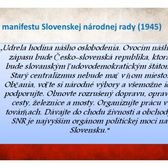
On February 4, 1945 the Slovak National Council issued a manifesto for the liberated territory on new political, economic and nationality relationships in liberated Czechoslovakia.
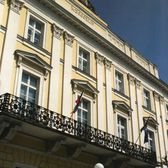
Based on the results of the 1946 general elections in the post war Czechoslovakia the Slovak National Council was recreated in September 1946
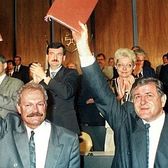
On 17 July 1992, the Slovak National Council voted to proclaim the sovereignty of the Slovak Republic as a precondition for state sovereignty and on 1 September it passed the Constitution of the Slovak Republic. The Constitution of the Slovak Republic was published in the Collection of Laws of the ČSFR under No.460/1992 Coll. It came into effect on 1 October 1992. Although still taking into account the existence of the common federal state it had nevertheless been construed as a constitution of a fully sovereign state with a number of transitional provisions whose legal effect expired on 1 January 1993 – the day when Slovakia became independent. Among the important changes that took effect thanks to the new Constitution was that the hitherto formal name of the Slovak parliament (Slovak National Council) had changed to the National Council of the Slovak Republic.
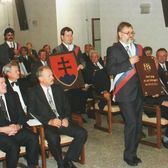
On 3 December 1992 the Slovak parliament met at an extraordinary session to adopt a Proclamation of the National Council of the Slovak Republic to Parliaments and Peoples of the World presenting the domestic and foreign policy principles of the emerging Slovak Republic as well as a Declaration of the National Council of the Slovak Republic on the Membership of the Slovak Republic in the Council of Europe and on the Assumption of Obligations resulting from International treaties.
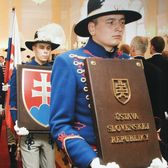
Slovakia became an independent nation on 1 January 1993. On that first day of independence a joint solemn session was called in Bratislava, attended by NR SR deputies and members of the Government of the Slovak Republic. During the course of that solemn event the Slovak parliamentarians approved The Declaration of the National Council of the Slovak Republic on the Occasion of the Coming into Being of an Independent Slovak Republic.
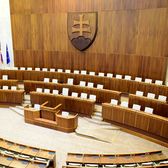
First parliamentary elections held after independence
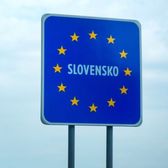
Slovak parliament approved the Agreement on the Accession to the European Union.
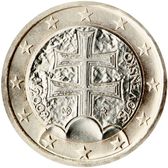
The National Council of the Slovak Republic passed the law on introducing the euro on January 1, 2009
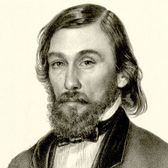
The Year 2007 was proclaimed by the Slovak parliament as the Year of Jozef Miloslav Hurban (the first head of the Slovak National Council) and the year 2008 as the Year of the First Slovak National Council (to mark the 160th anniversary of the coming into being of the first Slovak parliament)